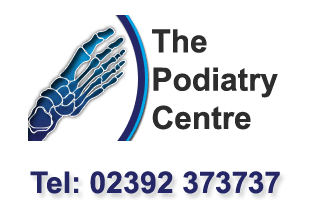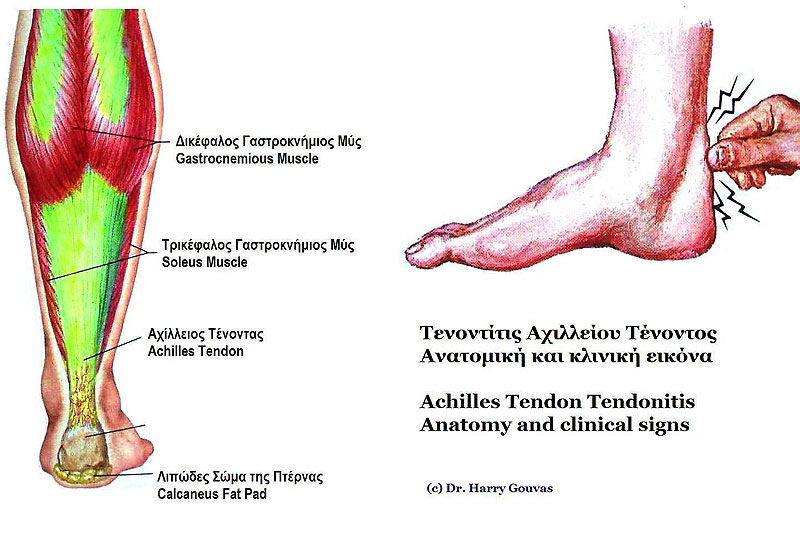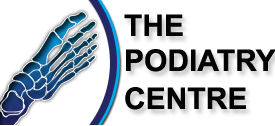

Achillies Injuries
What is the Achilles Tendon?
The Achilles tendon runs down the back of the lower leg connecting the calf muscle to the heel bone. It facilitates walking by helpingyou lift the heel off the ground.
Achilles Tendonitis and Achilles Tendonosis.
Achilles tendonitis is an inflammation, usually short lived, of the Achilles tendon. However, this may lead to degeneration of the tendon (Achilles tendonosis), when the tendon loses its structure and develops microscopic tears. Sometimes the degeneration involves the site where the Achilles tendon attaches to the heel bone. In rare cases, chronic degeneration with or without pain may result in rupture of the tendon.
Symptoms
The symptoms associated with Achilles tendonitis and tendonosis include:
- Pain - aching, stiffness, soreness, or tenderness - within the tendon. This may occur anywhere along the tendon's path, beginning with the narrow area directly above the heel upward to the region just below the calf muscle. Often pain appears upon arising in the morning or after periods of rest, then improves somewhat with motion but later worsens with increased activity.
- Tenderness, or sometimes intense pain, when the sides of the tendon are squeezed. There is less tenderness, however, when pressing directly on the back of the tendon.
- When the disorder progresses to degeneration, the tendon may become enlarged and may develop nodules in the area where the tissue is damaged.
Causes
Achilles tendonitis and tendonosis are usually caused by a sudden increase of a repetitive activity involving the Achilles tendon. Such activity puts too much stress on the tendon too quickly, leading to micro-injury of the tendon fibres. Due to this ongoing stress on the tendon, the body is unable to repair the injured tissue. The structure of the tendon is then altered, resulting in continuous pain.
Athletes are at high risk of developing disorders of the Achilles tendon as are people whose work or weekend activities put stress on their ankles and feet.
In addition, people with excessive flattening of the arch have a tendency to develop these conditions due to the greater demands placed on the tendon when walking. If these individuals wear shoes without adequate stability, their over-pronation could further aggravate the Achilles tendon.
Orthotics are often used in the over-pronator to reduce the abnormal forces and mal alignment through the achilles.
Diagnosis
In diagnosing Achilles tendonitis or tendonosis, we examine the patient's foot and ankle and evaluate the range of motion and condition of the tendon.
Treatment
Treatment is planned on the basis of how long the injury has been present and the degree of damage to the tendon. One or more of the following options may be recommended in the early stage, when there is sudden (acute) inflammation.
- Immobilization. Immobilization may involve the use of a cast or removable walking boot to reduce forces through the Achilles tendon and promote healing.
- Ice. To reduce swelling due to inflammation, apply a bag of ice over a thin towel to the affected area for 20 minutes of each waking hour. Do not put ice directly against the skin.
- Oral medications. Anti-inflammatory drugs such as ibuprofen, may be helpful in reducing the pain and inflammation in the early stage of the condition.
- Physical therapy. Physical therapy may include strengthening exercises, soft-tissue massage/mobilization, gait and running re-education, stretching and ultrasound therapy.
Prevention
To prevent Achilles tendonitis or tendonosis from recurring we may recommend strengthening and stretching of the calf muscles through daily exercises. Wearing proper shoes for the foot type and activity is also important in our treatment.
Other Foot Conditions: Ageing Feet, Blisters, Chilblains, Gout, Heel Pain, Osteoarthritis, Rheumatoid Arthritis, Sweaty Feet, Verrucae - for full advice please follow this link to The College of Podiatry.
 Photo: Dr Harry Gouvas - Wiki Commons Licence
Photo: Dr Harry Gouvas - Wiki Commons Licence Get in touch
To find out more about our foot care services please call us at our nearest podiatry clinic.

